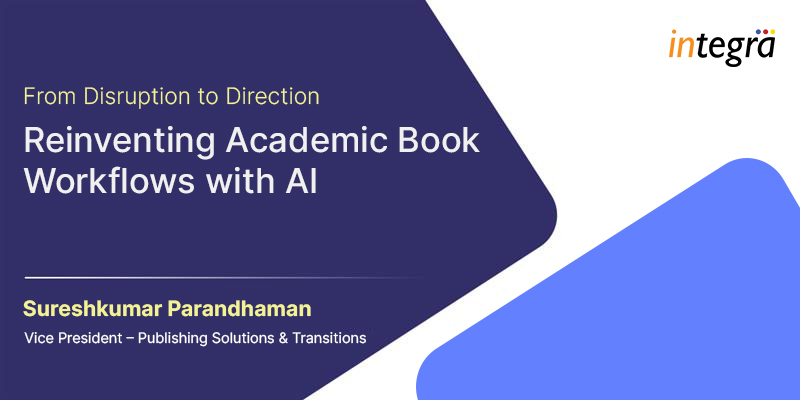AI as the Silent Writing Partner: Aiding Language Refinement in Scholarly Publishing

Delve into the crucial role of effective academic communication and the obstacles authors encounter in achieving high language quality. Uncover the capabilities of AI-powered language and editing tools, offering a contextual approach that goes beyond grammar checks to enhance coherence and clarity. Explore the collaborative synergy between human expertise and AI, resulting in polished academic manuscripts. Emphasize the advantages of embracing AI technology to elevate language standards in academic publishing, benefiting authors and journals alike. Delve into the significance of language clarity on the credibility of scholarly work and address the complexities involved in evaluating language quality, including the limitations of traditional grammar-checking tools. Introduce readers to innovative AI-powered tools that offer contextual language recommendations, focus on authors’ intent while generating content, and automate workflows, reducing manual intervention. Ultimately, emphasize how AI elevates language quality, fosters effective academic communication, and enhances research dissemination.
The Human-AI Synergy in Enhancing Language Quality for Journal Publishers
Every research is an attempt to answer a critical question. Your hard work might help answer the question wonderfully or even throw up new questions for future research. However, unless you can communicate your hypothesis, methodology, findings, and conclusions effectively, there is little hope of your efforts being recognized or the scientific community benefiting from your work.
Scholarly publishers, on the other hand, need to sustain the trust of their readers and win over new ones by upholding the highest quality standards. They not only check every manuscript for the quality of research, but also the language. For this, every approved manuscript is put through a rigorous editing process to refine the writing and meet the journal’s quality criteria.
Challenges to Meeting Academic Language Quality Standards
“The language barrier between thoughts and written words constitutes a hindrance for non-native speakers,” says a research paper published in Linguistics and Literature Studies in March 2021. But this isn’t just true for non-native speakers. After all, a brilliant researcher need not also be a prolific writer.
Academic language is very different from the usual written language. To be considered academic, the writing should be formal, factual, analytical, objective, clear, and explicit. In fact, poor language is among the top reasons for manuscripts being rejected by scholarly journals. Academic writing requires distinct styles of sentence construction and expression and even a different lexicon.
Communicating your thoughts and research findings in an organized, accurate and sensitive manner can be a challenge, even if grammar isn’t one. For non-native speakers, drawing inferences with clarity and overcoming the difference in structural construction between the mother tongue and English can also pose a problem.
The reality is that scholarly research is meant for a niche audience, which puts specific demands on the language, based on the field of research. Logical, ethnographic, socio-linguistic, and pedagogical challenges might need to be dealt with by both authors and editors.
Overcoming Language Challenges with Technology The rapid evolution of AI/ML and NLP has brought highly sophisticated technology tools to ensure quality control right from the writing stage of the journal publishing cycle. Today, AI-powered platforms are even helping journal publishers identify the best-fit reviewers for the peer review stage while automating multiple tasks to ensure higher speed and accuracy.
With an AI-powered authoring and publishing platform, researchers can save significant time and effort in preparing manuscripts according to a journal’s specific standards and submission criteria. With the power of NLP, authors can ensure concise, accurate, and well-structured text, freeing up their mind space to focus on the more important aspects of the manuscript, such as data analysis.
Some of the specific areas where AI can complement human effort for best results are:
Formatting of Manuscripts
Both authors and publishers can benefit from automated, standardized formatting, compliant with each journal’s specific style guidelines. This includes ensuring that citations follow the suggested style, including how author names, journal titles, publication dates, etc., are formatted. AI/NLP can also ease editing and translation, where required. The end result is better chances of the manuscript being approved.
Identifying and Resolving Issues Early
AI can scour large amounts of text to automatically identify irregularities, missing information, language editing needs, and much more. Early red flags ensure early resolution, saving authors and publishers time and effort in the submission process.
Language Review
IGrammar and spelling tools are old hat now. Today, machine learning and natural language processing (NLP) algorithms flag inaccuracies, helping authors easily meet stringent language standards. While semantic and syntactical analysis leads to linguistic accuracy, ontological and taxonomical analysis helps with statistical reporting consistency.
With such tools, regulatory compliance can be ascertained from the manuscript creation stage, while publishers get to enhance and accelerate the editing and peer review processes at scale. In addition, early identification of research inaccuracies and content manipulation prevents reputational damage for authors and publishers.
The Right Technology Partner Enriches Scholarly Publishing
With a powerful cloud-based technology platform, powered by AI, ML, and NLP, authors, editors, and publishers can collaborate seamlessly to bring the highest quality academic papers to the public. Such platforms not only automate and streamline workflows, but also accelerate each stage of publishing to bring the latest research to the market in the least possible time. In fact, AI-powered language tools have proven to reduce turnaround time to mere minutes from the traditional 60-90 days. This could translate into remarkable language accuracy, assuring over 80% correctness in the first go and 40% cost savings for publishers.
Recent Blogs

Research Integrity vs. Publication Integrity: Clarifying Responsibility in Scholarly Publishing

From Disruption to Direction: Reinventing Academic Book Workflows with AI


